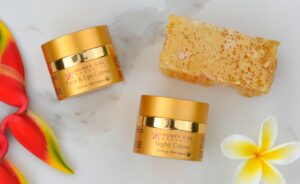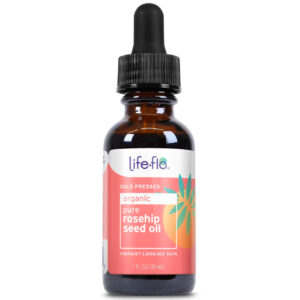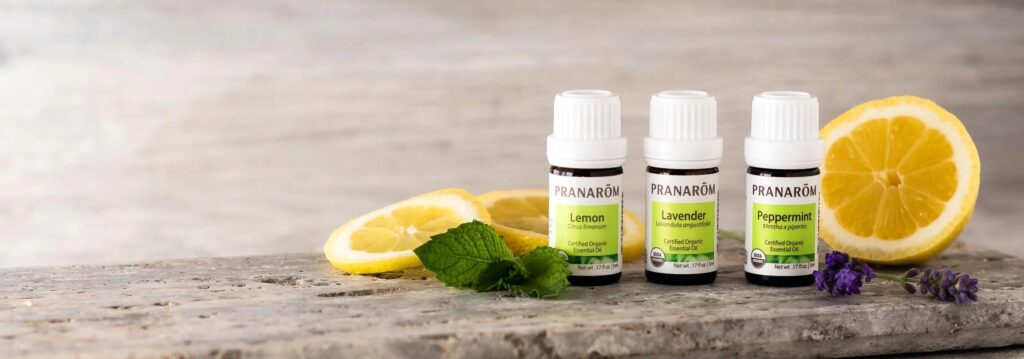The skin is the body’s largest organ. We take things in through the skin and release things through it as well. We need to be mindful of what we put ON our bodies because it can get IN our bodies.
Therefore, natural skincare is not only essential for skin health but also for overall well-being. Since roughly 70% of what we apply to the skin can be absorbed, we want what’s in our skincare to be safe for the entire body. The average person uses 10 or more skincare products per day, so the choice of products is crucial to health.
Surprisingly, skincare products and their ingredients aren’t subject to FDA premarket approval, except for color additives. This lack of oversight means cosmetic firms are responsible for ensuring the safety of their products before marketing. This leaves you, the consumer, vulnerable to potentially harmful substances. Some of these include parabens and phthalates, which have been linked to hormone disruption in over 100 studies.
To help you navigate the complex landscape of skincare ingredients, we developed these 3 easy steps:
1. Scrutinize ingredients!
Read through the ingredients of skincare products you intend to buy. Opt for those with natural components. The safest skincare ingredients are those you could eat. For example, the base of all Honey Girl Organics lotions and creams is made from organic olive oil, organic honey, and organic beeswax. We recommend looking for products with organic base oils like jojoba, apricot kernel, avocado, coconut, hemp seed, sweet almond, shea butter, and aloe vera.

For scented products, make sure the scent comes from 100% essential oils. These oils not only smell beautiful, but have health properties for the skin as well. The term “fragrance” on the back of skincare products is a red flag because it often hides phthalates, chemicals known to disrupt our hormone systems.
Be aware that European brands must adhere to the higher safety standards of the European Commission (EC). The EC has banned more than 1700 chemicals from skincare products, and severely restricted another 300. The ban pertains to ingredients that are carcinogenic, mutagenic (causes changes in DNA), and/or are toxic to reproduction. In contrast, the United States has banned just over a dozen chemicals in skincare products.
This makes brands like Weleda and Dr. Hauschka (in-store only) a safe choice!
2. Consider Ingredient Concentration
When looking at a skincare label, the top third of the ingredients list is the most important. This is where the highest concentration ingredients are listed. If the top portion of the list contains chemical ingredients, this is likely a product you do not want to use.
Sometimes, products with an emphasis on chemical ingredients can be less expensive. If you are shopping on a budget, consider single ingredient skincare products like organic coconut oil, olive oil, shea butter, or similar.

Ingredient concentration also matters when it comes to making sure you will get the benefits a brand is touting. For example, if you were looking for an active ingredient like Vitamin C, a manufacturer might put a tiny amount of that in the product to capitalize on the marketing benefits.
A better approach would be to look for products with natural ingredients that provide active constituents. In the Vitamin C example, you could look in the top third of an ingredient list for Rosehip seed oil, which is a great source of Vitamin C, delivered in a complete package with other nutrients.
3. Look for Certifications or Ratings
USDA Organic certified skincare is often hard to find because ingredients like water and zinc oxide (in the case of sunscreens) are not considered organic ingredients. So, it is important to look at individual ingredients and use outside sources to vet your products.
One source is Environmental Working Group’s Skin Deep database, which can aid in evaluating products and individual ingredient safety. Some of our customers also use the app Yuka to evaluate the purity of their skincare products. While these resources are not perfect, they are a helpful starting point.
Here at Walsh we have high standards for the skincare products we carry. We look at every ingredient to make sure that our products are not only safe, but will also nurture the health of your skin.
Want to learn more about clean skincare brands? Attend our April 18th Event: Clean Skincare Night. You can sample lots of products, get personalized recommendations, and shop great discounts! GET TICKETS HERE




